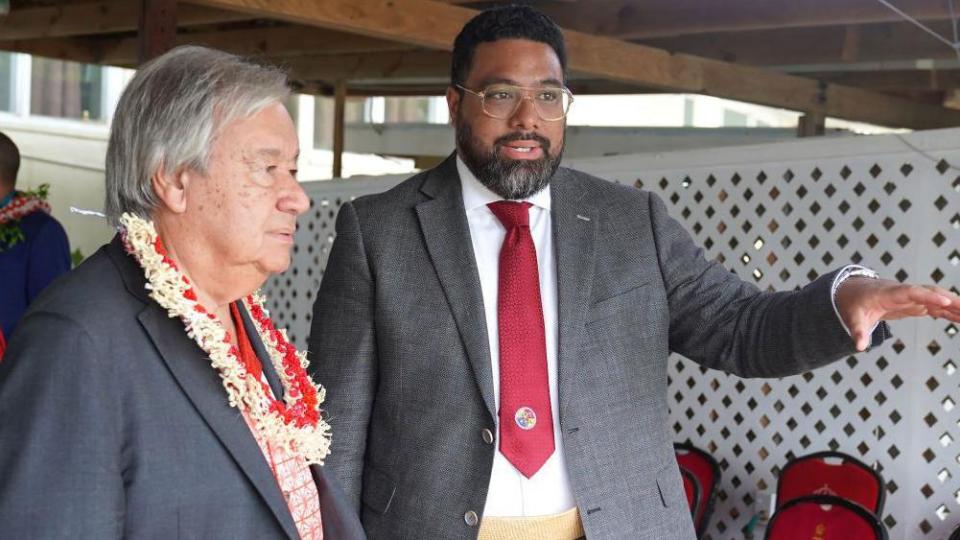United Nations Secretary-General António Guterres has emphasized the urgent need for big polluters to reduce emissions or face a global catastrophe. Speaking at the Pacific Island Forum Leaders Meeting in Tonga, he highlighted the vulnerability of the Pacific region to the impacts of climate change. Despite not being major contributors to climate change, Pacific islands are disproportionately affected by rising sea levels, warming oceans, and acidification due to the absorption of carbon dioxide by the sea. The UN released reports confirming these threats and calling for immediate action.
The theme of this year’s forum is transformative resilience, which was tested during the opening day when heavy rains caused flooding and an earthquake struck the region. The impact of volatile weather patterns in the Pacific region serves as a stark reminder of the importance of preparing for climate-related disasters. Despite these challenges, Pacific islanders displayed their resilience through a street parade with banners proclaiming their determination to fight against rising sea levels. The UN Climate Action Team has warned that global average sea levels are rising at unprecedented rates, posing a significant threat to vulnerable island nations.
Secretary-General Guterres, who has been vocal about the impacts of climate change on Pacific islands, highlighted the lack of urgency and support from the international community in addressing the needs of small, developing island states. He expressed frustration over the bureaucratic delays in funding crucial projects like sea walls in communities threatened by rising sea levels. Guterres emphasized the urgent need for solidarity and support for countries facing the devastating effects of climate change, particularly in the Pacific region.
Australia, as the largest regional emitter and donor, has faced criticism for its continued extraction and use of fossil fuels. Despite calls to phase out fossil fuels, Prime Minister Anthony Albanese announced plans to ramp up gas extraction until at least 2050. Guterres called on big polluters like Australia to take responsibility for reducing emissions to prevent exceeding the 1.5C threshold set in the Paris Agreement. Limiting global warming to 1.5 degrees Celsius is crucial to preventing irreversible damage to ice sheets and catastrophic events associated with higher temperatures.
Guterres urged the G20 countries to come together and commit to significant reductions in emissions to meet the targets set in the Paris Agreement. He emphasized the need for a 43% reduction in global emissions by 2030 and a 60% reduction by 2035 to limit global warming and prevent catastrophic climate impacts. The secretary-general called on the G20 countries and major corporations to take responsibility for their contributions to global emissions and reverse the current trend leading to climate change. He stressed the importance of immediate action to combat climate change and prevent irreversible environmental damage.
The Pacific Islands Forum Leaders Meeting serves as a platform for Pacific island nations, Australia, and New Zealand to address critical issues like climate change and rising sea levels. The vulnerability of small island states in the face of climate change highlights the urgent need for international solidarity and support. Secretary-General Guterres’ visit to communities affected by rising sea levels underscored the real impact of climate change on people’s livelihoods. The Pacific region’s resilience in the face of climate disasters is evident, but concerted global action is needed to prevent the worst effects of climate change and protect vulnerable communities.








